- Home
- Mary Stewart
Rose Cottage
Rose Cottage Read online
MARY STEWART
Rose Cottage
www.hodder.co.uk
Contents
Cover
Title
Contents
Copyright
Dedication
Praise for Mary Steward and Rose Cottage
Chapter 1
Chapter 2
Chapter 3
Chapter 4
Chapter 5
Chapter 6
Chapter 7
Chapter 8
Chapter 9
Chapter 10
Chapter 11
Chapter 12
Chapter 13
Chapter 14
Chapter 15
Chapter 16
Chapter 17
Chapter 18
Chapter 19
Chapter 20
Chapter 21
Chapter 22
Chapter 23
Chapter 24
Chapter 25
Chapter 26
Chapter 27
About the Author
Also by Mary Stewart
First published in Great Britain in 1997 by Hodder and Stoughton
An Hachette UK company
Copyright © Mary Stewart 1997
The right of Mary Stewart to be identified as the Author of the Work has been asserted by her in accordance with the Copyright, Designs and Patents Act 1988.
All rights reserved.
No part of this publication may be reproduced, stored in a retrieval system, or transmitted, in any form or by any means without the prior written permission of the publisher, nor be otherwise circulated in any form of binding or cover other than that in which it is published and without a similar condition being imposed on the subsequent purchaser.
All characters in this publication are fictitious and any resemblance to real persons, living or dead, is purely coincidental.
A CIP catalogue record for this title is available from the British Library.
Epub ISBN: 9781444715101
Book ISBN: 9781444715095
Hodder and Stoughton Ltd
An Hachette UK Company
338 Euston Road
London NW1 3BH
www.hodder.co.uk
To the gentle shades of Henry, George,
Patsy, Nip, Rosy, Maudie and Muffin,
and all the other friends whom I met again in
my stroll down Memory Lane.
Praise for Mary Stewart and Rose Cottage:
‘A rattling good yarn’ Sunday Telegraph
‘A sunset touch … a gentle love story … a happy return’ The Times
‘She set the bench mark for pace, suspense and romance – with a great dollop of escapism as the icing’ Elizabeth Buchan
‘A comfortable chair and a Mary Stewart: total heaven. I’d rather read her than most other authors.’ Harriet Evans
1
It is 1947, a calm, still day of June. On the wide spreading moorland the ling is dark and as yet unflowering, but the bell heather is out, and bees are busy. Sunday afternoon peace. A grouse calls somewhere, safe still for a few weeks from men and guns.
The weather has been fine, and the hillside is dry, but a little way down the slope the cotton-grass shows fluffy-white among the reeds and dwarf thickets of bog myrtle. A tiny burn drips and trickles down to where the bog water gathers in dark brown pools, to soak away gently towards the river that winds along the base of the strath.
Strathbeg, the valley is called on the maps, the small glen. To its few inhabitants it is just ‘the glen’, and the big house, Strathbeg Lodge, to be glimpsed among its sheltering trees some way below, is simply ‘the House’. Built originally as a shooting lodge, it has belonged for some years to the Brandons, who used to come here each year in summer from their home in the north of England. From a distance the Lodge is imposing, with its baronial turreting and stepped roofing, its well-grown timber and its lawns reaching to the river with its series of salmon pools, but from nearer can be seen the signs of the neglect enforced by the recent war; the woodwork could do with a coat of paint, the rhones all too obviously need to be cleaned out, the lawns are no longer lawns, but pastures cropped by sheep. It is still not possible, two years after the end of the war, to find the labour and the materials necessary to restore the place to good order, but the family make the best of it, and the best, in fact, is very pleasant. After the traumas and shortages of the war years the glen is a haven of peace, and a steady supply of milk, eggs, fish, mutton and venison goes a long way to make up for threadbare carpets and unmended pipes and the eccentricities of the plumbing.
The family, what is left of it, came here to stay in 1940, when their English home was requisitioned by the RAF. Lady Brandon settled in with her married daughter and the daughter’s two children. Sir James spent his war in London, only travelling north for brief leaves. The son, Gilbert, who was unmarried, was killed at El Alamein. Now that the war is over the son-in-law, Major Drew, is home, and taking over on behalf of his own small son, William, who is the heir. Sir James is home, too, but feels his age these days – he is well into his sixties – and the family seems to have settled happily enough into the quiet glen. Tod Hall, their home in England, having housed a series of high-spirited airmen dedicated to living the brief span of their doomed young lives to the full, has suffered so much damage that Sir James, without too much regret, has decided to use the compensatory cash to turn it into an hotel, and himself retire for good into the peace of Strathbeg. A peace which, at this moment, one could believe never to have been broken.
The burn, lapsing in whispers, is, apart from the bees, the only sound in the day. Both are drowned in the sudden hear ye, hear ye preliminary whistle of a curlew, and then the sky is filled, it seems, with the beautiful long, liquid call that is perhaps the loveliest, the most thrilling of all birds’ songs. ‘The silver chain of sound’ was how George Meredith described the lark’s singing, and poet after poet has added praise to the nightingale; but it would take all the poets, from Wordsworth down, to do justice to the curlew’s call. I, certainly, cannot describe it, other than to say that every time that liquid gold pours and bubbles through the sky, my skin furs up like a cat’s and my throat tightens with tears.
This was the effect that the song was having on the young woman who sat near the brow of the hill. She sat at ease on the heather, apparently with no other thought than to listen to the curlew’s song. She was a tall girl in her mid-twenties, dressed in a tweed skirt that looked expensive, and a silk shirt. Her hair was dark and fashionably cut, slightly ruffled in the shifting hilltop air. Her eyes – dark, too – were fixed on the curlew which, suddenly falling silent, was gliding to the heather some two hundred yards away. It would land, she knew, well short of its objective, and make a long and circuitous approach to the hiding place of its lurking, all-but-invisible young. It had, while pouring out that glorious, heart-piercing song, most certainly had both beady eyes on her, and would be watching her still.
As the thought touched her, she saw the foolish, long-beaked head pop up against the skyline, then vanish again swiftly, as no doubt the scuttling babies were herded away to safety. She smiled, and with the smile her face – which in repose was perhaps too serious, too set with some sort of private effort at self-rule – lighted, as she had been told at various times that it did, to a kind of beauty.
As she had been told. As I suppose I may not say for myself, since the girl (who was getting to her feet and brushing the heather dust from her skirt, in preparation for setting off downhill) was myself. Myself when young, some fifty years ago. Mrs Kate Herrick, aged twenty-four, widowed, well-to-do, and here in Strathbeg to visit her grandmother, who was employed as cook at the House.
Somewhere deep in the heather the grouse called
again, ‘Come back! Come back!’ And indeed Mrs Kate Herrick, who had been Kathy Welland, and who had helped in the kitchen and sometimes in the gardens of the House, had at last, and after more than four years, come back.
I looked at my watch. Gran would be awake now and, after the comings and goings of the morning, there would be time at last for that private talk. I had not arrived till late on the previous night, and still did not know why she had so urgently summoned me north ‘to have a real talk. No, not on the phone, hen, I’ll tell you when you come.’ Then as an afterthought: ‘You do remember Rose Cottage, don’t you?’
Of course I remembered Rose Cottage. It was one of the cottages on the Brandons’ English estate, and lay some two miles from the village of Todhall. My grandfather as a young man had been a gardener at the Hall, and one summer, when the family (as the Brandons were locally known) went north to their newly purchased Scottish estate, he went with them, to help with the recovery and re-making of the long-neglected garden. There he met and fell in love with Mary Campbell, the kitchen maid. They were married the following spring, in Todhall. A year later their daughter was born. In an uncharacteristically poetic moment they called her Lilias, a name taken from one of the portraits of long-dead Brandons that hung at the Hall. Lilias was my mother. I barely remembered her, but the memory was all delightful. Deliciously pretty, full of joyous spirits and invariably kind, she danced her way up from scullery maid to the heights of housemaiding at the Hall with a light heart and, as was found to my cost, what her eighteenth-century namesake would have called a light skirt.
I had never been told who my father was. My mother was of course banished from service at the Hall when she was found to be pregnant. Her parents, defying the customs of the time, took her in, and cared lovingly for her and, in due time, for her baby, while the Brandons, without a word on the subject, left their gardener and their cook to manage their own affairs. Which showed their good sense, since cooks as good as my grandmother were even in those days hard to come by.
When I was five years old, my grandfather died. I could barely remember him; a comfortable, earth-smelling giant who when my mother was elsewhere used to take me up to the walled garden and let me play – ‘helping Granddad,’ he called it – in the back premises behind the glasshouses. Soon after his death Gran’s elder sister came from Scotland ‘to keep her company’. This was Aunt Betsy, and with her came change.
Aunt Betsy was religious. Her religion, which kept her very strictly in the paths of righteousness, also obliged her to see that other people trod the same thorny path. Things which had never been said before, were said now, and frequently. (So much I did hear, later, from my grandmother.) Rose Cottage was no longer a place of kindness, but of Godliness with a capital G. My mother stood it for a year, then one night, soon after my sixth birthday, she left.
The room I shared with her was at the front of the cottage, over the kitchen, which was our main living room. I was wakened from sleep by raised voices. Gran’s, urgent with something that could have been despair or anger. My mother’s, unwontedly shrill and tearful. Aunt Betsy’s, high, hard, and assured. I slid down under the bedclothes and covered my ears.
A door slammed. I pushed the blankets back and sat up. Light footsteps on the bare wooden stairs. My bedroom door opening softly. My mother at my bedside, arms tight round me. A hand coming gently to stifle my questions.
‘It’s all right, love. All right. Mummy’s going away for a bit, that’s all. Be a good girl now, won’t you?’
‘Where’re you going?’
‘Just away. Not far.’
‘Can’t I come too?’
‘No, baby, no. But I’ll come home soon, see if I don’t, and then old Sourpuss’ll get her cards, and we’ll all be happy again.’ A giggle, then a swift kiss, which let me know that there were tears on her cheeks. ‘I’ve got to go. Mind your books at school now, Kathy. You’re a bright girl, and you’ll go a long way. See it’s a better way than me. Go to sleep now, lovely, and don’t forget your mum.’ A quick hug and another kiss. ‘Good night, baby.’
I stood at the window and watched her go down the front path. The moonlight was strong enough for me to see that she had Granddad’s battered old Gladstone bag in one hand, and in the other a bulging bass carrier of the sort that the family used for game and salmon.
I never saw her again. She had gone with the gipsies, Gran said. Every year they came to the same lane near our house for a few nights, and they were there on the night she left. But by morning the camp had vanished without trace, and there had been no way of getting in touch with her. From time to time she wrote, usually with the cards she sent for Christmas and for Gran’s and my birthdays. Some two years later she sent news that she was going to be married (‘so tell the old cat’) and was off to Ireland where ‘Jamie’ had been offered a job. She would write from there and tell us all about it. But she never did. She had been killed in a bus crash, she and her Jamie, somewhere in the west of Ireland. That was all Gran told me; it was Aunt Betsy, inevitably, who gave me the details. The couple had been the only passengers in the small country bus, when, in the dark, it ran into a stray bullock loose on the road, and plunged down a bank and burst into flames. The driver, ‘a good man, though no doubt he was a Catholic’, had been thrown clear, but had been badly burned himself in trying to free the two passengers. ‘And it was to be hoped’ (this was Aunt Betsy again) ‘that they were dead already.’
I do not know what Gran would have said if she had known about this, but, childlike, I said nothing, and took out my grief and horror in nightmares. But when, a little time later, Aunt Betsy was found to be working a text in cross-stitch which said THE WAGES OF SIN IS DEATH, my grandmother, normally the gentlest of women, tore it out of her sister’s hands and threw it into the fire.
And for once Aunt Betsy never said a word.
2
When I was sixteen the war broke out. I was at the local grammar school. The only other girl from the village who went was the vicar’s daughter, Prissy Lockwood. Our cottage lay almost two miles from the village, on the way to the station, and Prissy and I travelled together daily, two stops down the line. She was just about my only contact with the village in those days; there was very little to do in Todhall, and our relations with the Hall were hardly social. I worked there when I could – a shilling an hour – helping Gran in the kitchen. It paid my train fares, and helped a little here and there. At home I kept a good deal to my room, working most evenings at my school books, to keep out of Aunt Betsy’s way. My great-aunt was a good housekeeper, and I am sure that she was a help to Gran, who was working most days away at the Hall, but I knew that she still regarded me as the offspring – and probably the inheritor – of Sin, and things were never other than distant between us. I sometimes caught her watching me with what looked like positive dislike, but it is impossible to be accurate about such things, and her normal expression was, to say the last, sour and forbidding. She died in 1945, of a cancer that we had never suspected, and which she bore with the same ferocious strength that she had brought to her fight against Sin. By that time I had been away from home for nearly five years.
In 1940 the Hall was taken over by the RAF, and the family went north and asked Gran to go with them. She went with few regrets, her only worry being my future. Aunt Betsy (who in fact had not been asked to go) declined to leave Todhall; Gran would be ‘living in’ at Strathbeg Lodge, and there were new tenants in the Campbell cottage there, so Rose Cottage must remain her home. Things looked bleak for me. But here the vicar and his wife intervened, having no doubt heard something of my situation from Prissy. For my final year at school I was to lodge at the vicarage, and Prissy and I would take our Highers together. Which is what happened. My results were rather better than Prissy’s, a fact which she accepted with cheerful indifference: she had never had any ambitions beyond marriage and a family, and in fact, after leaving school, she only put in a year with me at a teachers’ training college in Durham
before marrying a young officer whom she met on holiday, and relinquishing her college place without regret. I finished my course and was then – to my grandmother’s delighted pride – appointed to an elementary school in a small Yorkshire town. I found lodgings near at hand, and, since I spent my holidays in Scotland, where I was glad to earn a little extra by ‘helping out’ at the House, I saw nothing of Todhall for the next few years.
Of my marriage I will say little except that it was a typical war-time affair, too commonplace in those days to be seen as tragic. I met Jonathan Herrick at a concert given by Yehudi Menuhin. In those days the great artists travelled the country, taking music to out-of-the-way places, playing sometimes even in village halls. Jon and I had seats next to one another. We were both in uniform – he was a Flying Officer, and I did part-time war service in the Royal Observer Corps, and had just come off duty – and in the intervals we talked, and after the concert we went out together and sat for hours over ersatz coffee in some small bar-café. We met again, took a bus out into the country and walked and talked. I don’t remember what about; he told me little of himself or his family, and nothing of his work; I knew merely that he was flying bombing missions over Germany. I took to watching and listening for the Halifaxes on ‘bombers’ nights’, and, when I was on duty, painfully trying to track the numbers of aircraft going and returning, without ever knowing which missions he was on.
In a short time – time was precious in those days – and after a few more meetings, I found that I loved him. We married, a typically hasty war-time affair, at which not even Gran (who was temporarily back at Todhall nursing Aunt Betsy) could be present. Five weeks later, in the last months of the war, Jonathan was killed. I found, to my stupefaction, that he had been wealthy, the only son of well-to-do parents who were both killed when a flying bomb got their Sussex home in a direct hit. That, with all it had held, was gone, but there was a London flat, and a great deal of money, all of it apparently mine. No angry relative turned up to contest it; there was no one, and Jon, his lawyers told me gently, had been careful to make a Will a few days before we were married. So there was I, Kate Herrick (Jon had hated the name Kathy and never called me by it), wealthy, widowed, and quite content to throw up her teaching job just as soon as the war ended, and move to the London flat. Eventually, because I found it hard to do nothing, but had no desire to go on teaching, I went to work in a big plant nursery at Richmond, which was run by the widow of one of Jon’s friends, whom I had met during the brief days of my marriage.

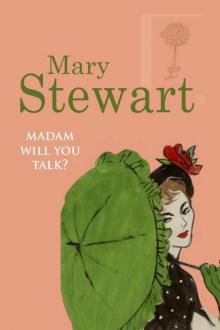 Madam, Will You Talk?
Madam, Will You Talk?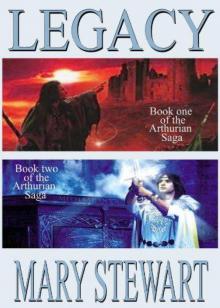 Legacy: Arthurian Saga 1-4
Legacy: Arthurian Saga 1-4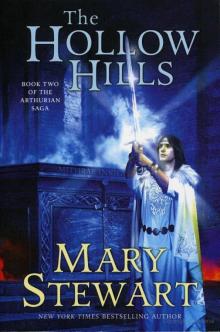 The Hollow Hills
The Hollow Hills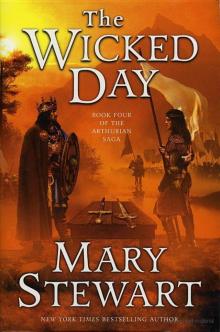 The Wicked Day
The Wicked Day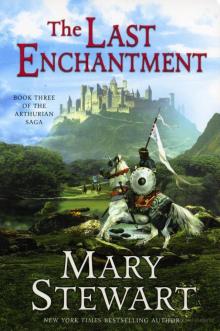 The Last Enchantment
The Last Enchantment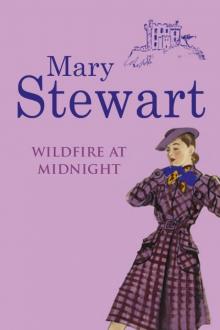 Wildfire at Midnight
Wildfire at Midnight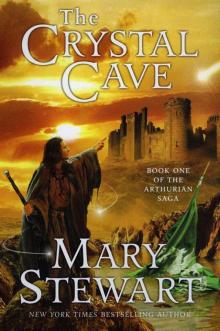 The Crystal Cave
The Crystal Cave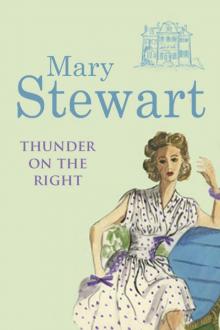 Thunder on the Right
Thunder on the Right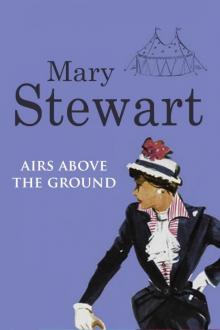 Airs Above the Ground
Airs Above the Ground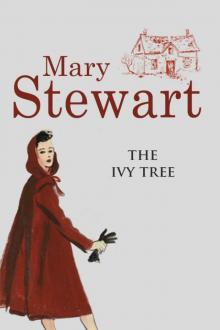 The Ivy Tree
The Ivy Tree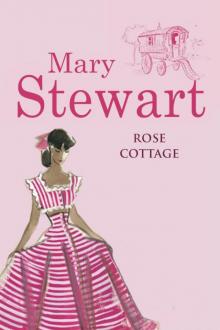 Rose Cottage
Rose Cottage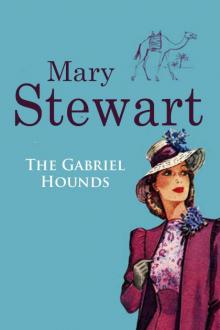 The Gabriel Hounds
The Gabriel Hounds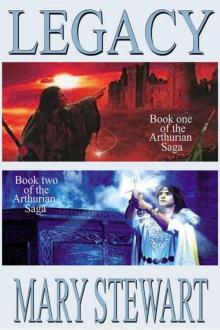 Legacy: Arthurian Saga
Legacy: Arthurian Saga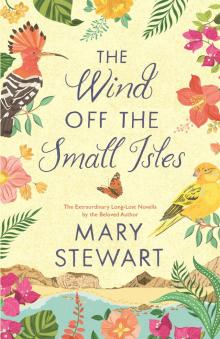 The Wind Off the Small Isles
The Wind Off the Small Isles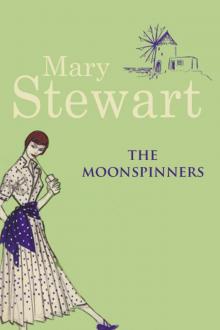 The Moonspinners
The Moonspinners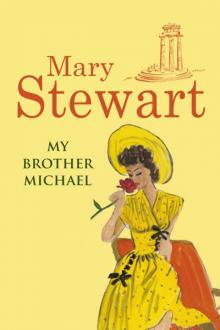 My Brother Michael
My Brother Michael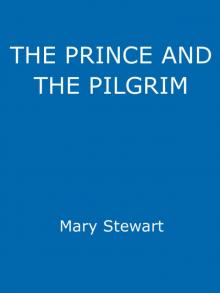 The Prince and the Pilgrim
The Prince and the Pilgrim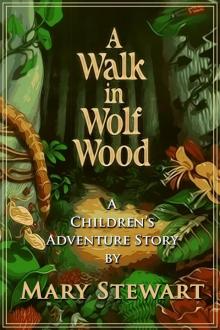 A Wlk in Wolf Wood
A Wlk in Wolf Wood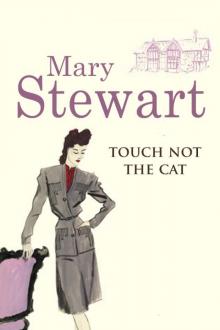 Touch Not the Cat
Touch Not the Cat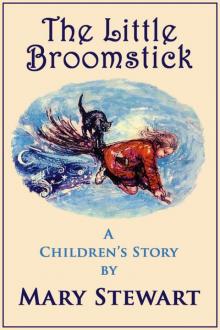 The Little Broomstick
The Little Broomstick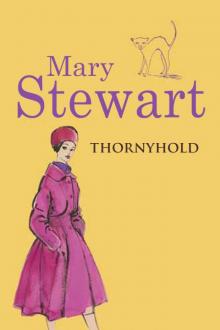 Thornyhold
Thornyhold This Rough Magic
This Rough Magic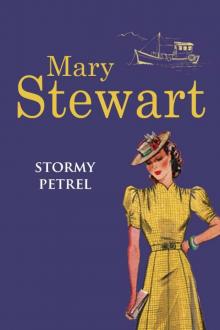 The Stormy Petrel
The Stormy Petrel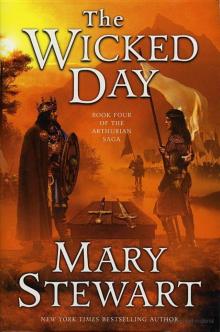 Wicked Day
Wicked Day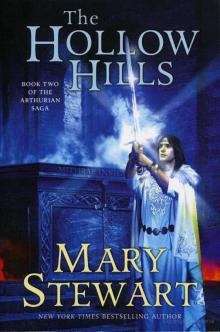 Hollow Hills
Hollow Hills WILDFIRE
WILDFIRE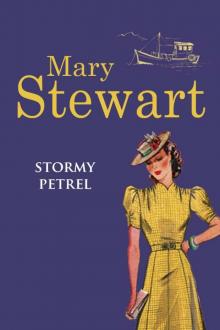 Stormy Petrel
Stormy Petrel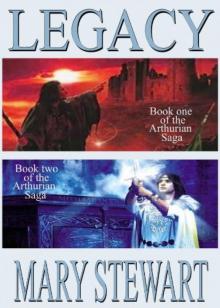 Legacy
Legacy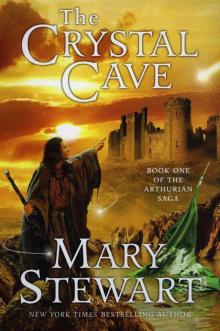 Crystal Cave
Crystal Cave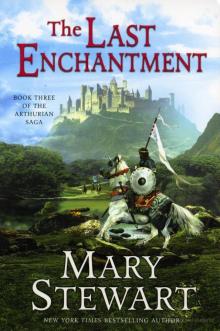 Last Enchantment
Last Enchantment